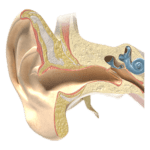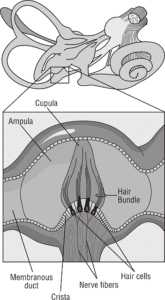PEDIATRIC ENT CLINIC IN DUBAI
PEDIATRIC ENT DEPARTMENT
Our pediatric clinic in Dubai specializes in the treatment ear, nose, and throat disorders in children. Staffed by a handpicked team of pediatric ENT specialists with extensive experience dedicated to providing the highest quality of care for your child, we are committed to ensuring that your child receives the best possible treatment.
What to expect from our
ENT Pediatric Dubai?
A pediatric ENT clinic, or pediatric otolaryngology clinic, is a medical practice that specializes in the diagnosis and treatment of ear, nose, and throat (ENT) disorders in children. As a multi-speciality hospital in Dubai, our pediatric ear nose and throat specialists have access to a wide range of advanced medical technology that provide multiple diagnosis and treatment options.
Our Pediatric ENT Dubai is staffed by a handpicked team of highly skilled physicians with extensive experience who are specifically trained in treating children, known as pediatric otolaryngologists or pediatric ENT specialists. These specialists have the knowledge and experience necessary to diagnose and treat a wide range of conditions that can affect children's ears, nose, and throat.
Other than pediatric otolaryngology, our pediatric clinic in Dubai have experience in a wide range of specialiaziations including:
Pediatric Cardiology
Pediatric Gastroenterology
Immunizations
Pediatric Surgery
Pediatric Pulmonology
MEET OUR TEAM OF PEDIATRIC TEAM
REQUEST AN APPOINTMENT
A member of our team will reach out to you & quickly get you booked in for an appointment with the most relevant member of our pediatric ENT team.
FREQUENTLY ASKED QUESTIONS ABOUT
BACK PAIN & SPINE SURGERY
What Causes Ear Infections In Children?
Ear infections are very common in children. It is quite normal for the child to have one or two infections in his second and third ear of life.

An ear infection occurs when one of the Eustachian tube becomes swollen or blocked, causing fluid to build up in your middle ear. Eustachian tubes are small tubes that run from each ear directly to the back of the throat.
The function of this tube is compromised in children because of the size and position of the tube and the fact that in children, it is primarily made of cartilage versus adults where it is made up of bone.
What is the process for Ear Foreign Body Removal?
Removing a foreign body from the ear can be a delicate process, particularly in children. A pediatric ENT specialist is trained in ear foreign body removal and our ENT clinic in Dubai is more than equipped with specialized instruments to perform the procedure safely and effectively.
The first step in the process is to examine the ear to determine the type and location of the foreign body. This is typically done using an otoscope, which is a handheld instrument with a light and magnifying lens that allows the doctor to see inside the ear canal.
Once the foreign body has been identified, the next step is to remove it. In some cases, a foreign body can be removed using gentle suction or by using a specialized instrument to gently grasp the object and remove it from the ear.
In other cases, the foreign body may be too far inside the ear canal or too firmly lodged to be safely removed with these methods. In such cases, the doctor may need to use an instrument to grasp the foreign body and gently push it out of the ear canal.
It is important to avoid using cotton swabs or other objects to try to remove a foreign body from the ear as this can push the object further into the ear canal or cause damage to the delicate structures inside the ear. If a child is unable to keep still during the procedure, the doctor may administer a mild sedative to help them relax and remain calm.
What Are Common Symptoms for Ear Infections in Children?
Common symptoms have been known to include:
-
Pain or discomfort inside the ear
-
A feeling of pressure inside the ear that persists
-
Fussiness in young infants
-
Pus-like ear drainage
-
Hearing loss
-
Fever
How Can Ear Infections Be Prevented?
The following habits can help in reducing the chances of ear infections:
Washing your hands often
Avoiding overly crowded areas
Forgoing pacifiers with infants and small children
Breastfeeding infants
Avoiding second-hand smoke
Keeping immunizations up-to-date
What Is The Treatment Of Fluid Accumulation Behind The Ear Drum?
We first start with an antibiotics course. This is to take care of any active infection in the ear. (Any ear infection is usually followed by 1-2 weeks of build accumulation) if fluid is persistent, then further action must be undertaken depending on the age of child.
Most often, tubes are placed in the ears to allow fluid to drain out. In cases that involve enlarged adenoids, surgical removal of the adenoids may be necessary.
Are Recurrent Ear Infections Dangerous?
Usually not. Even recurrent ear infections are not associated with permanent damage to the ear. The most important issue is to make sure that the child is drinking fluids and does not dehydrated. Major complications such as brain abscess and serious problems do not usually occur unless the child is neglected or does not have access to reasonable medical care.
What Is The Problem With Having Fluids In The Ear?
There are three problems associated with having persistent fluids in the ear.
- The first problem is recurrent ear infections. This is usually because the antibiotics do not reach a high concentration within the fluids. This controls the infection but does not eliminate the bacteria. After the patient stops antibiotics, the bacteria get reactivated and produce another infection.
- The second problem is the bones that conduct the sound inside the ear are usually suspended in the ear. If they are suspended in the fluids, they are less able to conduct the sound, therefore, producing a 30 to 40 percent hearing loss. While this hearing loss is only temporary, it occurs at the age when child is acquiring language and social skills and there is enough evidence that this influences speech development.
- The third problem is that closure of the tube connecting the nose to the ear is associated with negative pressure generated behind the ear drum, that causes the ear drum to move inward into the ear and could ultimately cause permanent damage to the bones conducting the sound in the ear. This damage is rather uncommon and is usually result of ignoring the fluids in the ear for years.
How Do Pediatric ENT Doctors Treat Recurring Sinus Infections In Children?
Pediatric ear nose and throat (ENT) physicians typically use a variety of treatment options to manage recurring sinus infections in children, depending on the specific case and the underlying causes. Some common treatment options include:
-
Antibiotics: These are often prescribed to help clear up the bacterial infection that is causing the sinusitis.
-
Decongestants or antihistamines: These medications can help relieve symptoms such as congestion and runny nose, making it easier for the child to breathe.
-
Nasal irrigation: This involves using a saline solution to flush out the nasal passages, which can help to reduce inflammation and clear away mucus.
-
Steroid nasal sprays: These sprays can help to reduce inflammation and swelling in the nasal passages.
-
Surgery: In some cases, surgery may be recommended if the child has structural abnormalities that are contributing to the recurring sinus infections.
-
Allergy management and Prevention: Identifying and managing allergies can help to prevent sinus infections by reducing the number of allergens that the child is exposed to.
The specialist will do an examination and proper evaluation, and base the treatment plan based on the result of examination, medical history and other factors.
What Is Tonsillitis?
Tonsillitis is an inflammation of the tonsils, which are two lymph nodes located in the back of the throat. In children, it is usually caused by a viral or bacterial infection, such as a strep throat. Symptoms include sore throat, difficulty swallowing, fever, and swollen glands in the neck. Some children may also have difficulty breathing, have trouble sleeping and have a lot of pain in swallowing.
How Is Tonsillitis Treated?
The treatment for tonsillitis typically includes antibiotics if the cause is bacterial and pain management for the symptoms. Drinking plenty of fluids and getting enough rest can also help.
Will Removal Of Tonsils Affect Future Health?
In some cases, a child may need to have their tonsils removed surgically in a procedure called a tonsillectomy. This is typically recommended for children who have frequent episodes of tonsillitis or have complications from the condition such as sleep apnea.
The removal of the tonsils usually do not impact future health, but after the surgery the child will have to avoid some foods and drinks that can irritate the throat, avoid strenuous activities and take care of the incision.
What Is The Middle Ear?
The middle ear is a small, air-filled chamber that is located behind the eardrum. It contains three small bones, known as the ossicles, which are the malleus, incus, and stapes.
These bones work together to transmit sound waves from the outer ear to the inner ear. The middle ear also helps to equalize the pressure between the outer ear and the inner ear.
What is Hearing Loss in Children?
There are several potential causes of hearing loss disorders in children, including:
- Congenital (present at birth) causes, such as genetic mutations or malformations of the inner ear or neural pathways.
- Perinatal (occurring around the time of birth) causes, such as premature birth, low birth weight, or exposure to certain medications or infections during pregnancy.
- Acquired causes, such as infections (such as meningitis or measles), head trauma, exposure to loud noise, or certain medical conditions (such as diabetes or kidney disease).
- Ototoxins (a substance that can damage the inner ear, like certain antibiotics)
- Progressive hearing loss which can be hereditary, or caused by certain diseases, such as otosclerosis (a condition that affects the bones of the middle ear).
It is worth to note that Children hearing loss is commonly undiagnosed and untreated, it is important to have regular hearing screenings in children and address any hearing loss as early as possible, since it can impact their speech, language, and cognitive development.
What type of care can be provided to neonates in a neonatal intensive care unit (NICU)?
A high end pediatric ENT clinic in Dubai would be fully equipped to provide the best care for neonates in the NICU. Patients of neonatal intensive care units have unique and complex needs, and we are equipped with the expertise and knowledge to provide the highest level of care. Our experience in the field of pediatric ear, nose and throat (ENT) disorders, combined with our training in the latest health sciences and surgical techniques, enables us to deliver the specialized care that your child deserves.
What are some common and complex disorders that you treat in children?
We specialize in treating a wide range of common and complex pediatric ENT disorders, including ear deformities, throat illnesses, and sleep apnea, among others. Our pediatric ent team is trained to diagnose and provide treatment for all types of pediatric ear, nose and throat disorders, using the latest techniques and technologies, including the test auditory brainstem response and nasal endoscope nasolaryngoscopy removal.
Can you tell me about your Doctors' surgical training and expertise?
The ENT surgeons at our ENT clinic in Dubai is highly trained and experienced in the latest neck surgery techniques and technologies. We have acquired additional skills through our specialized training and have been published in numerous articles on the editorial board of the American College of Pediatric ENT. Our commitment to providing the best care for our patients is reflected in our focus on continued education and professional development.
What is your approach to treating children and how do you provide specialized care?
We adopt a child-friendly approach to treating our young patients. Our team is dedicated to providing specialized care that is tailored to the unique needs of each child. We understand that children have different needs than adults, and we are equipped to provide the specialized care that is necessary for their full recovery. Our experience in treating pediatric ear, nose and throat disorders, combined with our commitment to providing the best possible care, results in a great experience for our patients and their families.
Can you tell me about the facilities available at your children's hospital in Dubai?
Our pediatric ENT clinic is located within a state-of-the-art children's hospital in Dubai, United Arab Emirates. Our facilities are designed to provide the highest level of care and comfort to our young patients and their families. We have the latest equipment and technologies available, including specialized tools for the treatment of pediatric ear, nose and throat disorders. Our team is dedicated to ensuring that your child receives the best possible care in a safe and comfortable environment.
Can you provide treatment for sleep apnea in children?
Yes, we provide treatment for sleep apnea in children. Sleep apnea is a common pediatric ENT disorder that affects breathing during sleep, and it is important to diagnose and treat it early. Our team of pediatric ent specialists is trained in the latest techniques and technologies for the treatment of sleep apnea, and we work closely with sleep specialists to provide the best possible care. Our goal is to help your child achieve a healthy and restful sleep, and to ensure their full recovery.
Can you perform normal delivery procedures for children with ear and throat disorders?
Our pediatric ent team is trained in the latest techniques for the treatment of ear and throat disorders in children, including normal delivery procedures. We understand that the safety and comfort of your child are of the utmost importance, and we work closely with the pediatrician and other specialists to ensure that their delivery is as safe and comfortable as possible. Our goal is to provide the specialized care that your child needs, and to help them achieve a full and healthy recovery.
Can you treat pediatric ear deformities?
Yes, we treat pediatric ear deformities. Our team of pediatric ent specialists is trained in the latest techniques for the correction of ear deformities, and we work closely with plastic surgeons to provide the best possible care. We understand that ear deformities can be a source of concern for both the child and their family, and we strive to provide a child-friendly approach to care. Our goal is to help your child achieve a healthy and aesthetically pleasing appearance, and to restore their self-confidence.
Can you perform a test auditory brainstem response (ABR)?
Yes, we perform the test auditory brainstem response (ABR) as part of our diagnostic evaluation for children with hearing and balance problems. The ABR is a non-invasive test that measures the electrical activity generated by the inner ear and brainstem in response to sound. Our team is trained in the latest techniques for performing the ABR, and we work closely with audiologists to ensure that your child receives the best possible care. Our goal is to help diagnose your child's hearing and balance problems, and to provide the most effective treatment.
PARTNERING WITH LEADING
MEDICAL INSURANCE PROVIDERS
We work with leading medical insurance providers in the country, if you have any questions or queries just give us a call on 8008254268.















